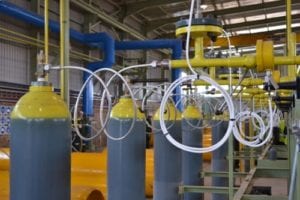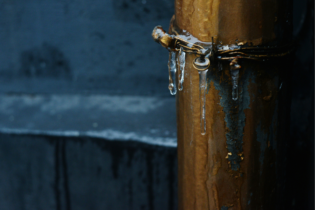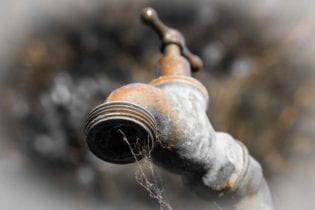Protea Chemicals officially opened its new Chlorine Plant and distribution facility on the existing Omnia site in Sasolburg on 23 October 2013. “This new facility will be brought into production on budget and on time,” says Protea Chemicals’ project consultant, Peter Leopold.
“This is a major investment for Protea – one of the largest the company has made in a production facility. It is a demonstration of the company’s commitment to the water treatment industry in Southern Africa and complements its strong position in the production and marketing of other water treatment chemicals,” says Leopold. Chlorine is used primarily by municipalities for the cost-effective sanitisation of potable water. The supply of chlorine is therefore critical to the production of drinking water and the disinfection of sewage. There has, since 2004, been only one plant in South Africa that supplied packed chlorine to this industry.The advent of a second supplier – first conceived of in 2009 – gives comfort to the market because there are now two plants that can supply its requirements, according to Leopold. “This is a significant change in the strategic supply risk and will therefore have a significant impact.” South Africa is also the dominant supplierto Southern Africa. Chlorine still crucial “In spite of the occasional attention attracted by other technologies, it remains true to say that more than 95% of the world’s drinking water is disinfected with chlorine. There are no other technologies that provide all the technical and commercial advantages in one chemical or treatment process,” explains Leopold.This does not mean that the production and distribution of chlorine is without challenges. “Chlorine is a hazardous chemical so there are ethical and legal aspects related to its safe production, handling and distribution. Our plant is a new greenfield site and all the equipment, tanks and cylinders are new. We had no legacy of existing plant or technologies to which we had to adapt, so we were able to source the latest and best of everything,”he explains. An example of this is evident in that every tank and cylinder has its own unique RFID tag, so Protea and its customers know where it is at all stages of its life.
As mentioned above, the RFID tracking is a significant innovation because these tanks and cylinders can end up in some really remote places and keeping track of them is a commercial and legal requirement. “In addition, we have a tank that is filled to a full 1 tonne net weight. This is 8% more than the commonly used mass and enables us to get better filling and transport economics.” The bigger picture Protea is part of the Omnia group and shares the vision of “creating customer wealth by leveraging knowledge”, explains Leopold.He adds that chlorine is also not a fundamentally easy product to use; it is hazardous, it is governed by rules and regulations, and it requires the support of a training and safety infrastructure. “We believe that by applying our considerable expert knowledge in all these fields, we will be able to make the purchase and use of chlorine a more cost-effective experience for our customers. “It is important to see that the chlorine project is a component of Protea’s overall presence in water treatment chemicals. The group is already a major player in this industry and its capability includes Zetachem’s well-known production facilities in Durban and Cape Town, as well as major trading operations in all water treatment chemical commodities. The chlorine project therefore is another cornerstone in an already established business sector,” concludes Leopold.





